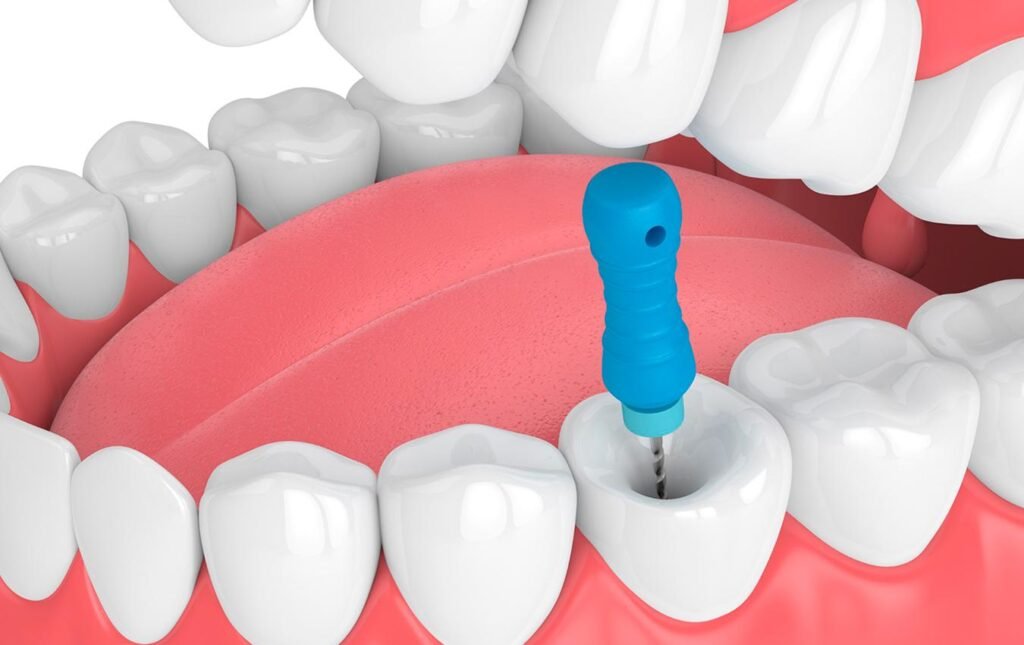Single-Sitting Root Canal Treatment: A Faster, Pain-Free Way to Save Your Tooth
- Expert Dental Care by Dr. Sagar Lokhande
- Service
- Single-Sitting Root Canal
Single-Sitting Root Canal
Root canal treatment often has a reputation for being lengthy and painful, but thanks to advancements in modern dentistry, that’s no longer the case. At Pristine Smiles Dental Care, we offer single-sitting root canal treatments that save your tooth, eliminate pain, and restore your oral health—all in just one appointment.
What Is a Single-Sitting Root Canal Treatment?
A root canal treatment is performed to remove infected or inflamed tissue (pulp) from inside a tooth and seal it to prevent reinfection. In a single-sitting root canal, the entire procedure—from cleaning and disinfecting to filling and sealing the tooth—is completed in just one appointment rather than multiple visits.

Why You Might Need a Root Canal
A root canal is typically recommended when the pulp inside your tooth becomes inflamed or infected due to:
How Long Does a Single-Sitting Root Canal Take?
A single-sitting root canal typically takes 60–90 minutes, depending on the complexity of the case and the number of canals in the tooth.
Is a Single-Sitting Root Canal Painful?
Benefits of Single-Sitting Root Canal Treatments


Diagnosis and Consultation
1Anesthesia and Isolation
2Cleaning and Shaping the Canals
3Filling and Sealing the Tooth
4Final Restoration
5Post-Treatment Care Tips
- Avoid Hard or Sticky Foods: Avoid chewing on the treated tooth until the permanent crown is placed.
- Maintain Good Oral Hygiene: Brush and floss daily to keep your teeth and gums healthy.
- Take Medications as Prescribed: If antibiotics or pain relievers are recommended, follow the prescribed dosage carefully.
Watch for Unusual Symptoms: Contact the clinic if you experience swelling, prolonged pain, or sensitivity after the procedure.
How Long Does a Root Canal-Treated Tooth Last?
When Is a Multi-Sitting Root Canal Recommended Instead?
In such cases, we ensure that each phase of the treatment is carried out with precision and care to achieve the best outcome.
Why Choose Pristine Smiles Dental Care for Single-Sitting Root Canal Treatments?


